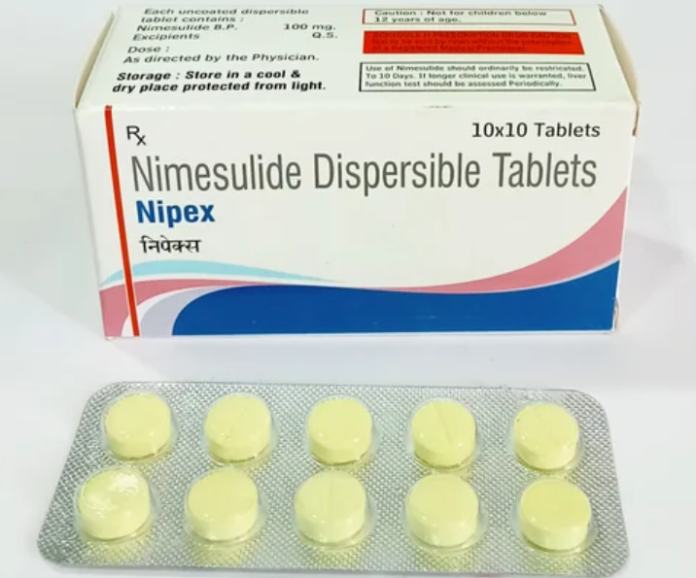Despite a 13-year ban on the use of the painkiller Nimesulide in children under 12 years of age, reports of side effects continue to surface, indicating that the drug is still being prescribed. In light of these reports, the Indian Pharmacopeia Commission (IPC) has called on drug manufacturers to raise awareness among healthcare professionals, particularly paediatricians, about the dangers of prescribing the drug to children.
Nimesulide, a non-steroidal anti-inflammatory drug (NSAID) used to treat pain and fever, has been prohibited for pediatric use in India since 2011. The Union Ministry of Health and Family Welfare cited the drug’s potential to cause liver toxicity, which is especially concerning for children, in their decision to implement the ban.
However, the IPC, which oversees the Pharmacovigilance Program of India (PvPI), continues to receive reports of adverse drug reactions in children linked to Nimesulide. These ongoing incidents have prompted the IPC to send an official notice to drug manufacturers, urging them to “sensitise” healthcare professionals about the continued ban and dangers of prescribing Nimesulide to children.
The IPC’s letter, dated October 1, highlights that reports of Nimesulide-induced side effects, such as gastrointestinal bleeding, liver damage, and severe skin reactions like Stevens-Johnson Syndrome, are still being submitted under PvPI. In response, the IPC has requested drug manufacturers to distribute awareness materials to healthcare providers, particularly targeting paediatricians, to remind them of the ban.
Dr. Dinesh Raj, a paediatrician at Delhi’s Holy Family Hospital, expressed shock over the continued use of Nimesulide in children, noting that some practitioners may be unaware of the drug’s severe side effects. “Apart from standard side effects like gastritis and vomiting, Nimesulide has been linked to liver failure in children,” he stated.
Dr. GV Basavaraja, president of the Indian Academy of Pediatrics (IAP), suggested that outdated practices might be contributing to the problem. He noted that some older practitioners, or doctors working in rural areas where pediatricians are scarce, might still be prescribing the drug due to a lack of updated information. “In remote healthcare settings, it’s general physicians who may prescribe Nimesulide, unaware of the ban in children,” Basavaraja explained.
In response to the continued misuse, the IAP plans to issue another advisory to its 50,000 members, reiterating the ban on Nimesulide for pediatric patients. Dr. Maninder Dhaliwal, a pediatric pulmonologist at Amrita Hospital, pointed out that unfamiliarity with updated regulations, especially in smaller healthcare facilities, could also be contributing to these cases. “Some physicians may still prescribe Nimesulide for children because of a habit or lack of awareness about the regulatory changes,” she added.



